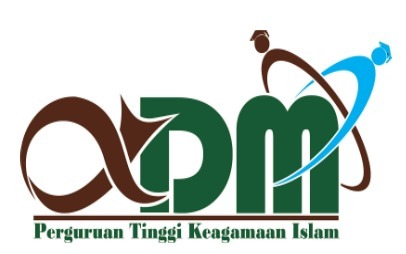Proses Penalaran Matematis Siswa SMP dalam Statistika
DOI:
https://doi.org/10.21580/square.2024.6.2.23575Keywords:
reasoning process, mathematics, statisticsAbstract
Mathematical reasoning is very important for students to master. This research aims to reveal students' mathematical reasoning processes in solving statistical problems. This research used a descriptive qualitative method involving 25 students from class VII-D of SMP Negeri 16 Semarang. The research instrument consists of mathematical problems related to statistics. Data collection was carried out through written tests and interviews. Data were analyzed by data reduction, data presentation, and drawing conclusions. The research results showed that 16% of students had high mathematical reasoning abilities, 72% of students had moderate mathematical reasoning abilities, and 12% of students had low mathematical reasoning abilities. Based on the results of interviews, the mathematical reasoning process of lower group students is hampered by the process of presenting mathematical statements verbally, drawings, sketches or diagrams; make allegations; checking the validity of an argument; and students' lack of understanding of mathematical concepts. The implications of the findings in this research can be used as a reference for developing appropriate learning strategies to overcome students' difficulties in the mathematical reasoning process.
Keywords: reasoning process, mathematics, statistics.
Downloads
References
Adegoke, B. A. (2013). Modelling the relationship between mathematical reasoning ability and mathematics attainment. Journal of Education and Practice, 4(17), 54–61.
Aditya, D. Y., Solihah, A. S. A., & Habibie, M. T. (2022). Mengembangkan Kemampuan Pemecahan Masalah Matematika melalui Kemampuan Penalaran Matematis dan Minat Belajar. Jurnal Pendidikan Dan Konseling (JPDK), 4(6), 4762–4771.
Ahdhianto, E., & Santi, N. N. (2020). The Effect of Metacognitive-Based Contextual Learning Model on Fifth-Grade Students’ Problem-Solving and Mathematical Communication Skills. European Journal of Educational Research, 9(2), 753–764.
Arikunto, S. (2010). Research Design. Pendekatan Metode Kualitatif, Al Fabet, Bandung, 22.
Bani, A. (2011). Meningkatkan Kemampuan Pemahaman dan Penalaran Matematik Siswa Sekolah Menengah Pertama Melalui Pembelajaran Penemuan Terbimbing. UPI: Bandung.
Choe, K. W., Jenifer, J. B., Rozek, C. S., Berman, M. G., & Beilock, S. L. (2019). Calculated avoidance: Math anxiety predicts math avoidance in effort-based decision-making. Science Advances, 5(11), eaay1062.
Dinni, H. N. (2018). HOTS (High Order Thinking Skills) dan kaitannya dengan kemampuan literasi matematika. PRISMA, Prosiding Seminar Nasional Matematika, 1, 170–176.
Fajriyah, L., Nugraha, Y., Akbar, P., & Bernard, M. (2019). Pengaruh kemandirian belajar siswa SMP terhadap kemampuan penalaran matematis. Journal on Education, 1(2), 288–296.
Gao, W., Allagan, J. D., Gao, S., Su, J., Malomo, O., Eyob, E., & Adekoya, A. (2023). Problem-Solving Using Logic and Reasoning, Mathematics, Algorithms, Python and Generative AI. 2023 International Conference on Computational Science and Computational Intelligence (CSCI), 371–377.
García-García, J. I., Rivera, I. A. I., Coronado, N. A. F., & Arredondo, E. H. (2019). Comprensión de una tabla estadística por estudiantes universitarios en México y Chile. Revista Eletrônica de Educação Matemática, 14, 1–16.
Godoy, T. C. G., Reyes-Santander, P., & Ayarza, R. O. (2021). Mathematical knowledge and overall practice in initial teacher education of early childhood teachers. Revista Brasileira de Educação, 26.
Haryanto, J. S. L., Soetedjo, K. A., Gevino, F., Horison, I., & Singgih, T. A. (2023). Top 10 Skills for Future Accountants in Digital Age (Indonesian Version). Ridwan Sanjaya.
Hendriana, H., Rohaeti, E. E., & Sumarmo, U. (2017). Hard skills dan soft skills matematik siswa. Bandung: Refika Aditama, 7.
Hernández, R. V., Rodríguez, E. R., & Mariño, L. F. (2023). Initial Conceptions in the Statistical Reasoning and Modeling Processes in Engineering Students. Journal of Positive Psychology and Wellbeing, 1005–1018.
Heryani, Y., Kartono, K., Dewi, N. R., & Wijayanti, K. (2021). Pengaruh Metode Mnemonik Terhadap Kemampuan Penalaran Matematis dan Daya Ingat. Prosiding Seminar Nasional Pascasarjana (PROSNAMPAS), 4(1), 449–454.
Kaur, B. (2019). The why, what and how of the ‘Model’method: A tool for representing and visualising relationships when solving whole number arithmetic word problems. ZDM, 51(1), 151–168.
Khadijah, S., Ismail, S., & Resmawan, R. (2020). Pengembangan Bahan Ajar Berbasis Penalaran pada Materi Sudut Pusat dan Sudut Keliling Lingkaran. Al-Khwarizmi: Jurnal Pendidikan Matematika Dan Ilmu Pengetahuan Alam, 8(1), 1–12.
Kipper, L. M., Iepsen, S., Dal Forno, A. J., Frozza, R., Furstenau, L., Agnes, J., & Cossul, D. (2021). Scientific mapping to identify competencies required by industry 4.0. Technology in Society, 64, 101454.
Konita, M., Asikin, M., & Asih, T. S. N. (2019). Kemampuan penalaran matematis dalam model pembelajaran connecting, organizing, reflecting, extending (CORE). PRISMA, Prosiding Seminar Nasional Matematika, 2, 611–615.
Kusumawardani, D. R., Wardono, W., & Kartono, K. (2018). Pentingnya penalaran matematika dalam meningkatkan kemampuan literasi matematika. Prisma, Prosiding Seminar Nasional Matematika, 1, 588–595.
Linola, D. M., Marsitin, R., & Wulandari, T. C. (2017). Analisis kemampuan penalaran matematis peserta didik dalam menyelesaikan soal cerita di sman 6 malang. Pi: Mathematics Education Journal, 1(1), 27–33.
Luque, E. A. C., Quirova, Y. A., Hinostroza, E. H., & Huamán, F. V. R. (2022). Importance Of Mathematical Skills In Education. Resmilitaris, 12(3), 3719–3731.
Maass, K., Geiger, V., Ariza, M. R., & Goos, M. (2019). The role of mathematics in interdisciplinary STEM education. Zdm, 51, 869–884.
Maslihah, S., Waluya, S. B., & Suyitno, A. (2020). The role of mathematical literacy to improve high order thinking skills. Journal of Physics: Conference Series, 1539(1), 12085.
Mordue, T., & Moss, O. (2023). Representational affectivities in nature-based leisure: the case of game-angling. Leisure Studies, 1–14.
Nazariah, O. (2022). BAB 1 PENALARAN MATEMATIKA. Konsep Dasar Matematika, 1.
Prajono, R., Rahmat, R., Maryanti, E., & Salim, S. (2021). Kemampuan Penalaran Matematis Siswa ditinjau dari Gender. JNPM (Jurnal Nasional Pendidikan Matematika), 5(2), 208–218.
Presmeg, N. (2020). Semiotics in mathematics education. Encyclopedia of Mathematics Education, 766–770.
Rizki, L. M., & Priatna, N. (2019). Mathematical literacy as the 21st century skill. Journal of Physics: Conference Series, 1157(4), 42088.
Robertson, S.-A., & Graven, M. (2020). Language as an including or excluding factor in mathematics teaching and learning. Mathematics Education Research Journal, 32(1), 77–101.
Siagan, M. V, Saragih, S., & Sinaga, B. (2019). Development of Learning Materials Oriented on Problem-Based Learning Model to Improve Students’ Mathematical Problem Solving Ability and Metacognition Ability. International Electronic Journal of Mathematics Education, 14(2), 331–340.
Sumarmo, U. (2011). Pembelajaran Matematika Berbasis Pendidikan Karakter. Prosiding Seminar Nasional Pendidikan Matematika STKIP Siliwangi Bandung, 1, 22–33.
Tashtoush, M. A., Wardat, Y., Aloufi, F., & Taani, O. (2022). The effect of a training program based on TIMSS to developing the levels of habits of mind and mathematical reasoning skills among pre-service mathematics teachers. EURASIA Journal of Mathematics, Science and Technology Education, 18(11), em2182.
Tristanti, L. B. (2019). The process of thinking by prospective teachers of mathematics in making arguments. Journal of Education and Learning (EduLearn), 13(1), 17–24.
Wang, W., Wang, X., & Chen, G. (2023). Survey and analysis of the statistical reasoning among high school students in China and Dutch. Journal of Mathematics Education, 15–26.
Weiland, T., & Engledowl, C. (2022). Transforming curriculum and building capacity in K–12 data science education.
Winarso, W. (2014). Membangun kemampuan berfikir matematika tingkat tinggi melalui pendekatan induktif, deduktif dan induktif-deduktif dalam pembelajaran matematika. Eduma: Mathematics Education Learning and Teaching, 3(2).
Wittmann, E. C., & Wittmann, E. C. (2021). Developing mathematics education in a systemic process. Connecting Mathematics and Mathematics Education: Collected Papers on Mathematics Education as a Design Science, 191–208.
Downloads
Published
Issue
Section
License
Copyright (c) 2024 Square : Journal of Mathematics and Mathematics Education

This work is licensed under a Creative Commons Attribution-ShareAlike 4.0 International License.
The Authors submitting a manuscript do so on the understanding that if accepted for publication, copyright of the article shall be assigned to Square: Journal of Mathematics and Mathematics Education as the publisher of the journal. The copyright form should be signed originally and send to the Editorial Office in the form of original mail, scanned document to [email protected]
Square : Journal of Mathematics and Mathematics Education by Mathematics Department UIN Walisongo Semarang is licensed under a Creative Commons Attribution-ShareAlike 4.0 International License.




























